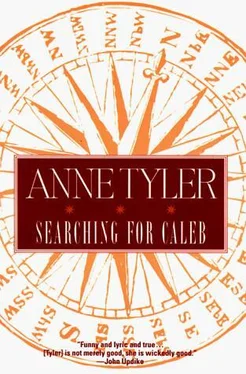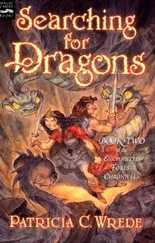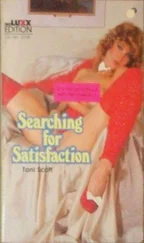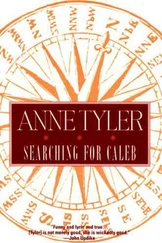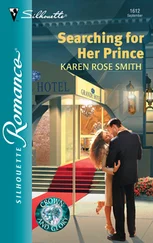Anne Tyler - Searching for Caleb
Здесь есть возможность читать онлайн «Anne Tyler - Searching for Caleb» весь текст электронной книги совершенно бесплатно (целиком полную версию без сокращений). В некоторых случаях можно слушать аудио, скачать через торрент в формате fb2 и присутствует краткое содержание. Жанр: Современная проза, на английском языке. Описание произведения, (предисловие) а так же отзывы посетителей доступны на портале библиотеки ЛибКат.
- Название:Searching for Caleb
- Автор:
- Жанр:
- Год:неизвестен
- ISBN:нет данных
- Рейтинг книги:5 / 5. Голосов: 1
-
Избранное:Добавить в избранное
- Отзывы:
-
Ваша оценка:
- 100
- 1
- 2
- 3
- 4
- 5
Searching for Caleb: краткое содержание, описание и аннотация
Предлагаем к чтению аннотацию, описание, краткое содержание или предисловие (зависит от того, что написал сам автор книги «Searching for Caleb»). Если вы не нашли необходимую информацию о книге — напишите в комментариях, мы постараемся отыскать её.
Searching for Caleb — читать онлайн бесплатно полную книгу (весь текст) целиком
Ниже представлен текст книги, разбитый по страницам. Система сохранения места последней прочитанной страницы, позволяет с удобством читать онлайн бесплатно книгу «Searching for Caleb», без необходимости каждый раз заново искать на чём Вы остановились. Поставьте закладку, и сможете в любой момент перейти на страницу, на которой закончили чтение.
Интервал:
Закладка:
By 1942 Bess had saved enough money to buy a cafe of her own in Box Hill, a town some twenty miles away. Caleb wasn't sure he wanted to go; he liked it where he was. But Bess had her mind made up and so he followed, amiably enough, lugging his fiddle and his pennywhistle and a flute and a change of clothes. This time he took a job as short-order cook in Bess's cafe. He found a park to do his fiddling in, a new crowd of children and courting couples to hear him in the evenings. Only nowadays more and more of the men wore uniforms, and the girls' clothes too were uniform-like-square-shouldered, economical of fabric-and he wondered sometimes, playing his same old music, whether people could really understand it any more. In his head, White-Eye Ramford still sang of despair and jealousy and cruel women and other rich, wasteful things. The couples who listened seemed too efficient for all that.
There was some trouble with Caleb's fingers-a little stiffness in the mornings. His bow hand could not get going at all if the weather was damp. And by now his hair was nearly white and his whiskers grew out silver whenever he went unshaven. On several occasions he was startled to find his father's face gazing at him from mirrors. Only his father, of course, would not have worn a dirty Panama hat, especially in the house, or a bibbed white apron stained with catsup or trousers fastened with a safety pin.
Bess's cafe was close to the freight tracks, between a seed store and a liquor store. There were some tough-looking men in those parts, but nothing that Bess couldn't handle. Or so she said. Till one evening in March of 1948 when two customers started arguing over a mule and one drew a gun and shot Bess through the heart by accident. Caleb was fiddling at the time. When he returned, he thought he had walked into a movie. These milling policemen, detectives, and ambulance attendants, this woman on the floor with a purple stain down her front, surely had nothing to do with the real world. In fact he had trouble believing she was dead, and never properly mourned her except in pieces-her good-natured smile, her warm hands, her stolid fat legs in white stockings, all of which occurred to him in unexpected flashes for many years afterward.
Of course now Caleb was free to go anywhere, but he had the responsibility of Bess's boy Roy, who was only thirteen or fourteen at the time. And besides, he liked Box Hill. He enjoyed his work as short-order cook, frying up masses of hash browns and lace-edged eggs in record time, and since the cafe now belonged to Roy what else could they do but stay on?
Year by year the cafe became more weathered, the sign saying "Bess's Place" flaked and buckled. Roy grew into a stooped, skinny young man with an anxious look to him. They took turns minding the business. Evenings Caleb could still go out and fiddle "Stack O'Lee" and "Jogo Blues." But his hands were knotted tighter and tighter now, and there were days when he had to leave the fiddle in its case. Then even the pennywhistle was beyond him; there was no way to tamp the airholes properly when his fingers stayed stiff and clenched. So he set about relearning the harmonica, which he had last played as a very young man. The warm metal in his hands and the smell of spit-dampened wood reminded him of home. He paused and looked out across the counter. Where were they all now? Dead?
He wiped the harmonica on his trousers and went back to his song.
Roy said they needed a waitress. This was in 1963 or so. They had the same small group of customers they always had, railroad workers mostly and old men from the rooming houses nearby. Caleb couldn't see that they had any sudden need for a waitress. But Roy went and got one anyhow, and once he had then Caleb understood. This was a pretty little blond girl, name of Luray Spivey. Before six weeks had passed she was Mrs. Roy Pickett and there was a jukebox in the corner playing rock-and-roll, not to mention all the changes in the apartment upstairs, where he and Roy had lived alone for so many years. She covered the walls of Roy's bedroom with pictures of movie stars torn out of magazines, mainly Troy Donahue and Bobby Darin. She brightened the living room with curtains, cushions, plastic carnations and seashells. She followed Caleb around picking up his soiled clothes with little housewifely noises that amused him. "Hoo-ee!" she would say, holding an undershirt by the tips of her fingers. But she wasn't the kind to run a man down. She knew when to stop housekeeping, too, and sit with Roy and Caleb and a six-pack of beer in front of the second-hand television she had talked Roy into buying for her. In the cafe she cheered everybody up, with her little pert jokes and the way she would toss her head and the flippy short white skirt that spun around her when she moved off to the grill with an order. All the customers enjoyed having her around.
Then the twins were born, in the fall of 1964. Well, of course life is hard with twins; you can't expect a woman to be as easy-going as ever.
Plus there was the financial angle. Certainly people require more money once they start having children. Luray was just frazzled with money worries, you could see it. She wanted so many things for her babies. She was always after Roy to take a second job, maybe driving a cab. "How we going to even eat?" she would ask him, standing there scared and fierce in her seersucker duster. (Once she had ordered her clothes off the back pages of movie magazines, all these sequined low-necked dresses and push-up bras.) So Roy took a job with the Prompt Taxi Company from six to twelve every night and Caleb ran the cafe alone. Not that he minded.
There wasn't much business anyway and he had just about given up his evening fiddling now that the park was gone and his hands were so stubborn and contrary. (Besides, sometimes lately when he played he had the feeling that people thought of him as a-character, really. Someone colorful. He had never meant to be that, he only wanted to make a little music.) So he would putter around the cafe fixing special dishes and talking to the customers, most of whom were friends, and after the plates were rinsed he might pull out his harmonica and settle himself on a stool at the counter and give them a tune or two. "Pig Meat Papa" he played, and "Broke and Hungry Blues" and "Nobody Knows You When You're Down and Out." The old men listened and nodded heavily and, "Now that is so," they said when he was done-a much finer audience than any courting couple.
Till Luray came down from upstairs with her hair in curlers and her duster clutched around her. "What all is going on here? Caleb, you have woken both babies when I had just slaved my butt off putting them down. What is everybody sitting here for? Shoo now! Shoo!" As if they were taking up seats that someone else wanted, when it was clear no more customers were coming; and anyway, they were having fun. There was no point to hurrying off when you were having fun.
Then Luray got back in her transparent white uniform and said she saw that she would have to start waiting tables again; men customers 'would leave her tips that they wouldn't leave Caleb. "Well, naturally," Caleb said. "They're personal friends, they wouldn't want to embarrass me." "It don't embarrass me," said Luray, tossing her head. She would open the stair door, listening for the babies. Caleb worried about her leaving them alone but she said they would be fine. She was saving up to buy them an electric bottle sterilizer. Caleb didn't think a sterilizer was all that necessary but he could see that, to Luray, there was always the chance that some single magic object might be the one to guarantee that her babies would live happily forever; and maybe the sterilizer was that object. So he was not surprised when after the sterilizer was bought she started saving up for a double stroller, and after that a pair of collapsible canvas carbeds although they didn't own a car. And he didn't hold it against her when she started criticizing his work, although certainly there were times when she got him down. "What do I see you doing here? How come you to be using pure cream? What you got in mind for all them eggs?"
Читать дальшеИнтервал:
Закладка:
Похожие книги на «Searching for Caleb»
Представляем Вашему вниманию похожие книги на «Searching for Caleb» списком для выбора. Мы отобрали схожую по названию и смыслу литературу в надежде предоставить читателям больше вариантов отыскать новые, интересные, ещё непрочитанные произведения.
Обсуждение, отзывы о книге «Searching for Caleb» и просто собственные мнения читателей. Оставьте ваши комментарии, напишите, что Вы думаете о произведении, его смысле или главных героях. Укажите что конкретно понравилось, а что нет, и почему Вы так считаете.
